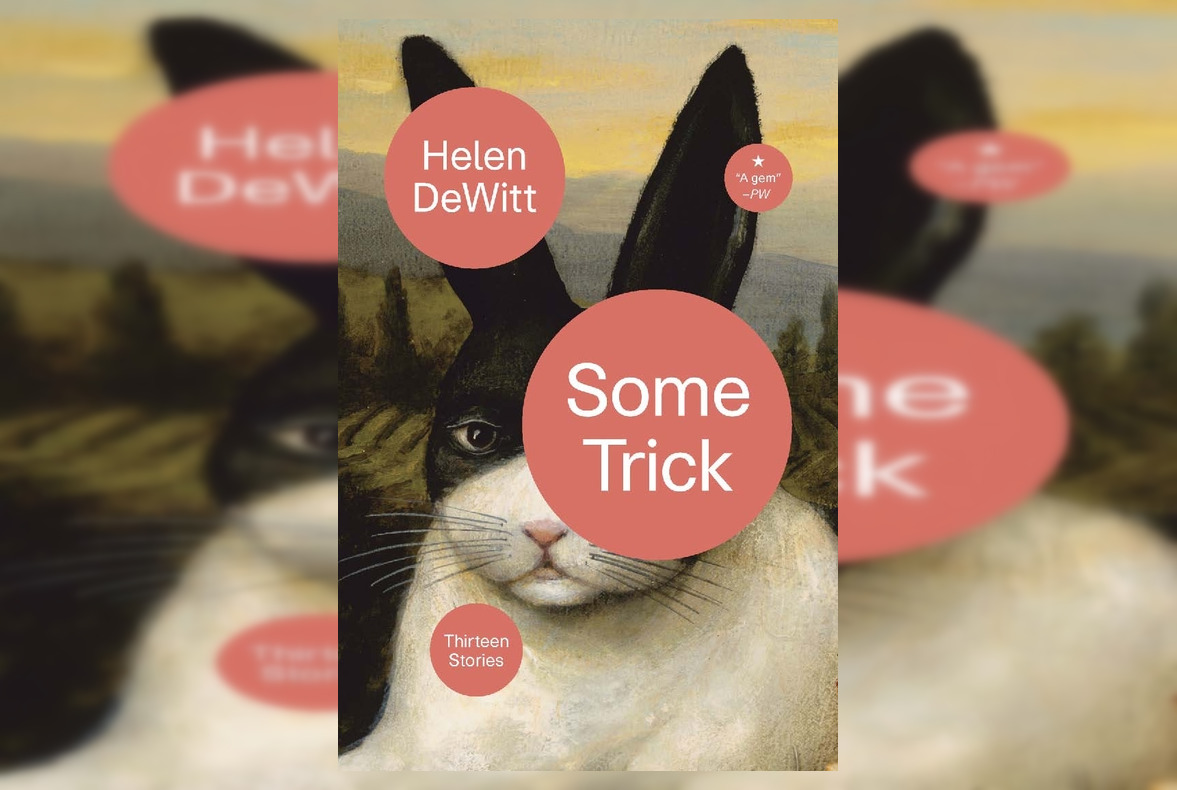Some Trick: Thirteen Stories is Helen DeWitt’s third book in nearly two decades. It begins with a two-page mock-epigraph called “Here Is Somewhere.” The section riffs off “We’re Off to See the Wizard” from The Wizard of Oz, except the rhyme scheme is interrupted by gainsay ideology, because because because:
‘What would you do with a heart but try not to hurt?’
The Tin Man hadn’t the heart to disappoint him.
He thanked him.
‘I feel nothing,’ he thought.
‘But I wouldn’t hurt a Behaviourist.’
Already, we are being primed for a world of deception, a world where innocents are taken for a ride. Some trick.
In “Brutto,” the first and strongest story from the collection, DeWitt writes, “The thing about being an artist is that from the minute you go to art school you realise there is this need to be canny. There is this need to make a name for yourself. There is the need to deal with people who have the power.” This is fair, and true. Art does not exist in vacuum. Art does not exist without ambition. Thus, sets out DeWitt, with the goal of grappling with the economy of capital-a Art.
“Brutto” captures the midlife of an artist whose work has earned the interest of a wealthy gallerist. The gallerist, however, fails to understand the art’s merit. Nods are made to the wholesale doctrine of Warhol’s Factory. The artist in question then learns she has to make several concessions for her paycheck.
In “My Heart Belongs to Bertie,” a mathematician and children’s math-related book author (is this a real thing?) negotiates the terms for his second book with a resistant American agent. The agent—Jim—refuses to grasp the importance of eiπ. A hideous “war of attrition” is then waged over the inclusion of eiπ.
Other stories similarly see reclusive writers and artists engaging in a push-and-pull of creative compromise, falling victim to the adoration of misunderstanding fans, refusing to sign autographs, etc. You don’t have to look too closely to find that each of these thirteen stories deals with the trade and industrialization of virtuosity. Some Trick, from every angle, is about the commerce of Genius.
As a writer in art school, I should find myself a favorable reader of fictionalized publishing misdemeanors. Yet, the book leaves me bristling with irritation. These storiesdon’t have the common bite of DeWitt’s satire. Instead, we get from them an overarching, passive-aggressive joke turned self-serious—thinly veiled metaphors of inscrutable genius from the philosophy textbook of a jaded publishing veteran. I am tempted to look the book in the eye and remind it that writers and artists aren’t the only people making concessions for a paycheck.
Still, there are redeeming moments, shimmering lines of prose that make you want to reconsider. Take this one from “Brutto”:
“You don’t realise that the people who are going to get their work to a certain level before the cut-off are not hitchhiking around Asia. If you would realise it you would not be able to do anything about it, because if you would not hitchhike around Asia you would not be an artist. So you can’t say if I would have gone to art college then.”
Some Trick ultimately serves as a reminder that art is a product of collected experiences, though not all collected experiences are guaranteed to make the cut-off.




